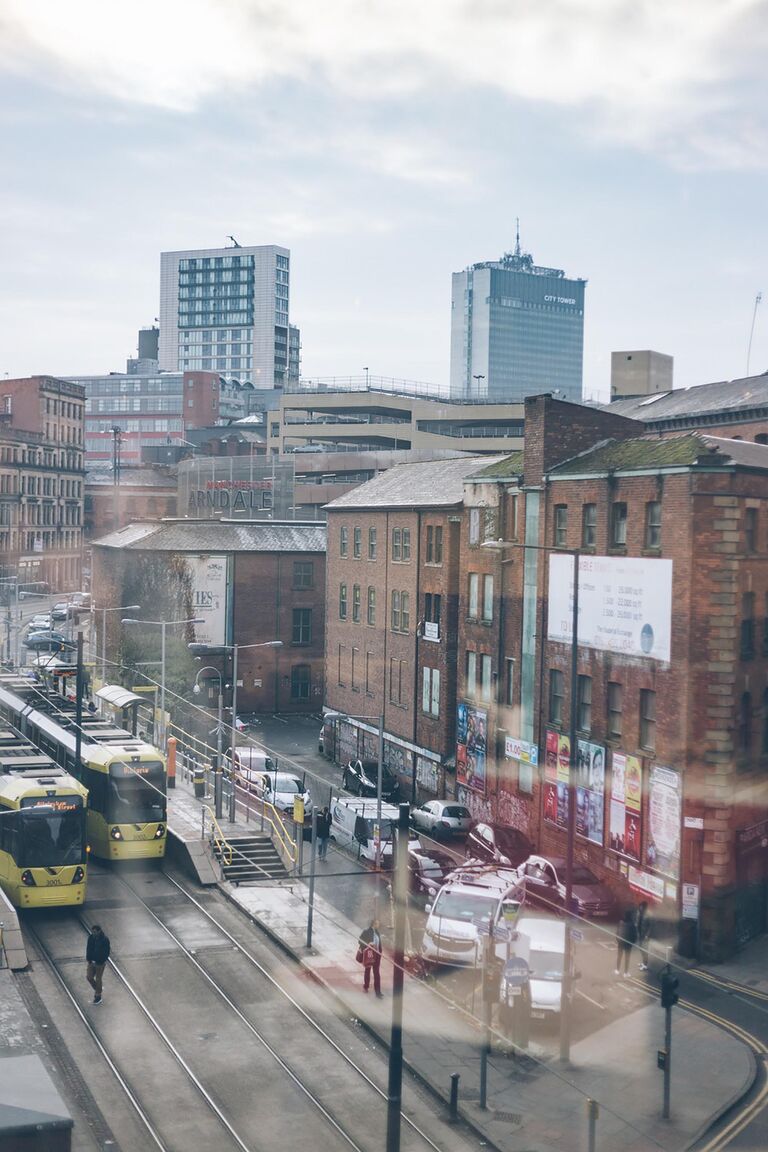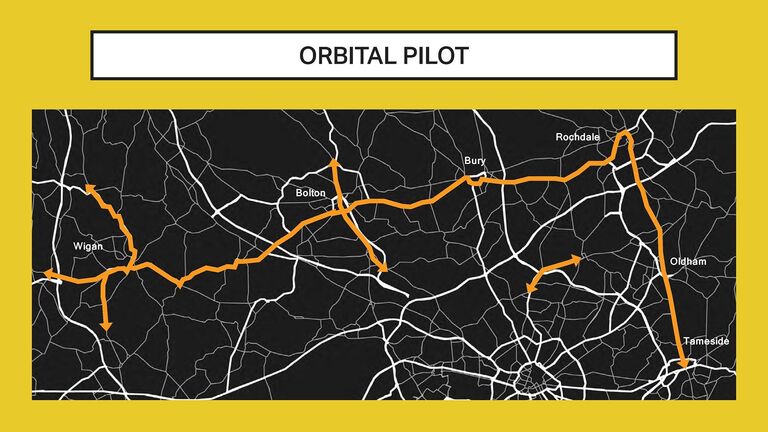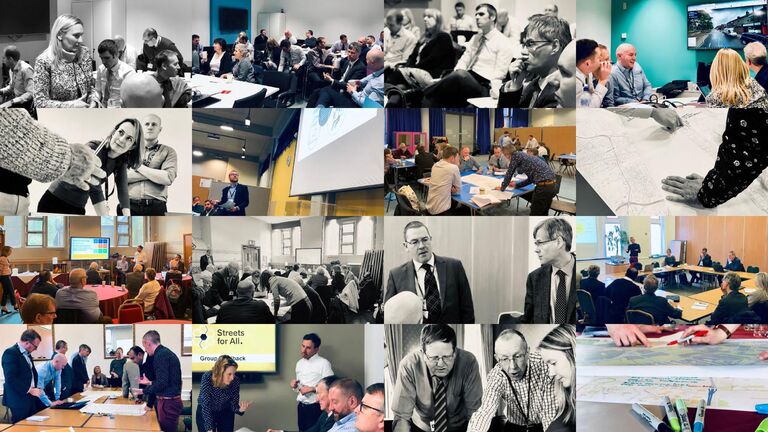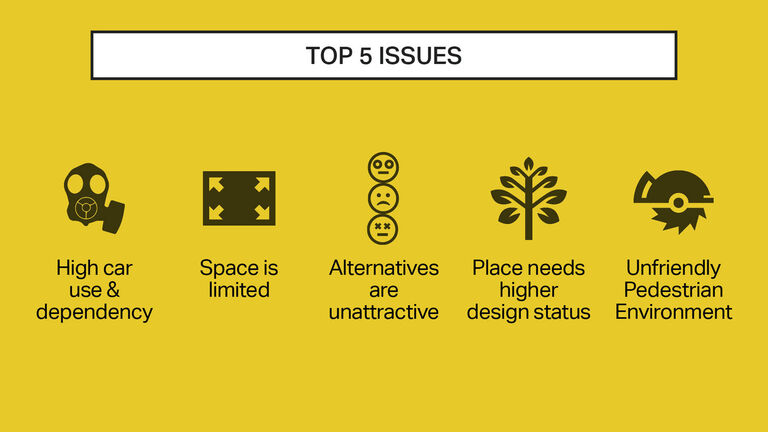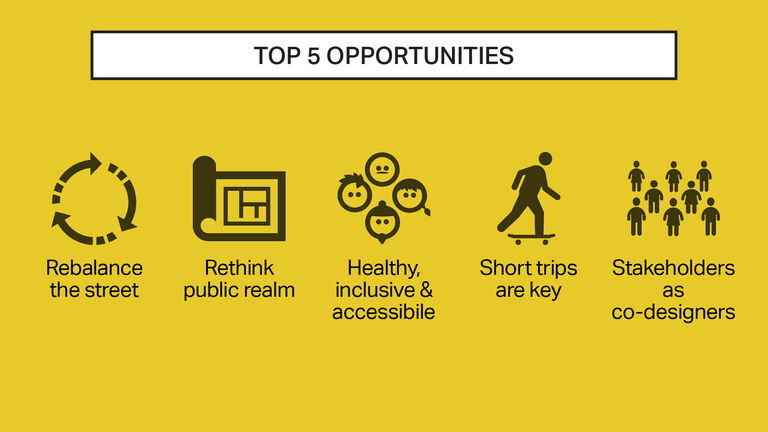Streets for All is about creating better places for a future Greater Manchester, creating streets that balance the movement of people and goods with the inclusion of more people-friendly places. Streets for All explores the critical role that streets across the region play in creating sustainable, healthy and resilient places, with a focus on people rather than vehicles.
The programme supports the vision of the Greater Manchester Transport Strategy 2040 with its ambition that by this date we have one million more sustainable journeys per day. Approaching streets as places for people, not just traffic lanes is an essential part of our plan to support this ambition.
